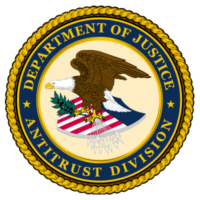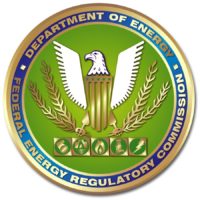

- This event has passed.
Register
AAI marks its 17th Annual Energy Roundtable, “Energy Markets, Infrastructure, and Policy—Competition Issues and Priorities.” by gathering experts in antitrust and regulation from government, industry, advocacy, and academia to discuss major competition policy issues involving electricity and energy. The half-day roundtable will focus on three topics that have important implications for competition enforcement and policy, both from an antitrust and regulatory standpoint. Two expert discussion leaders will facilitate each topic discussion. The one-hour sessions will tee up the issue, present major stakeholder and enforcement perspectives, and then open the discussion to the roundtable participants.
The first topic, “Grid Resiliency Policy – What it Means for Competition and Consumers,” will take up the issue of policy proposals that are designed to ensure the ability and flexibility of regional electricity markets to provide reliable sources of electricity, particularly in the event of major disruptions. Such policies have material implications for competition, innovation, and consumers. The panel will focus on how the constraints created by resiliency-motivated policies can change the structure of regional markets, change incentives to engage in pro-competitive or anti-competitive strategies by market participants, and possibly create barriers to entry. The discussion will focus on how regulatory policies around grid resiliency would complement or oppose the goals and benefits of competition.
The second topic, “Keeping Up With Vertical Competition Issues – Pipelines and Transmission,” will address current competitive issues involving integration between various parts of the electricity supply chain. This includes ownership of generation and transmission or natural gas pipelines. Vertical integration can create or change firms’ incentives to discriminate against or foreclose rivals from access to important inputs or distribution. Adverse effects can have material effects on consumers. Antitrust and regulation should make these issues a priority. The discussion will focus on regulatory developments and antitrust policy surrounding integration and its implications for competition and consumers.
The third topic, “Approaches to Assessing Market Power – Standards and Consistency,” will take up the issue of antitrust and regulatory approaches to identifying market power and assessing responses to the exercise of market power. The discussion will take up both merger review by the U.S. Department of Justice and Federal Energy Regulatory Commission, as well as non-merger conduct in electricity markets and such as capacity and energy. Consistency in assessing market power concerns across various areas of regulatory review (e.g., mergers and market based rates) is particularly important, as is coordination between regulatory and antitrust agencies.
Convene and Introductions
Diana Moss, President, American Antitrust Institute
Topic 1: Grid Resiliency Policy - What it Means for Competition and Consumers
Discussion Leaders:
John E. McCaffrey, Regulatory Counsel, American Public Power Association
Mark Niefer, Deputy Chief Legal Advisor – Civil, U.S. Department of Justice, Antitrust Division
Break
Topic 2: Keeping Up With Vertical Competition Issues - Pipelines and Transmission
Discussion Leaders:
Montina Cole, Senior Attorney, Natural Resources Defense Council
Sharon Segner, Vice President, LS Power Development, LLC
Topic 3: Approaches to Assessing Market Power - Standards and Consistency
Discussion Leaders:
Diana Moss, President, American Antitrust Institute
Amery Pore, Manager, Group 3, Division of Electric Power Regulation – West, Office of Energy Market Regulation, Federal Energy Regulatory Commission
Closing Remarks




Amery Pore
Manager, Group 3, Division of Electric Power Regulation – West, Office of Energy Market Regulation




